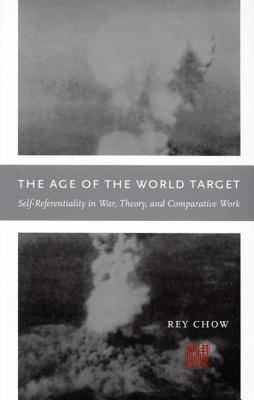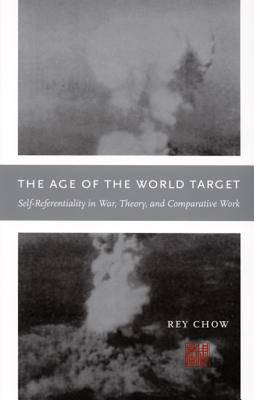
- Afhalen na 1 uur in een winkel met voorraad
- Gratis thuislevering in België vanaf € 30
- Ruim aanbod met 7 miljoen producten
- Afhalen na 1 uur in een winkel met voorraad
- Gratis thuislevering in België vanaf € 30
- Ruim aanbod met 7 miljoen producten
Zoeken
€ 45,95
+ 91 punten
Omschrijving
Martin Heidegger once wrote that the world had, in the age of modern science, become a world picture. For Rey Chow, the world has, in the age of atomic bombs, become a world target, to be attacked once it is identified, or so global geopolitics, dominated by the United States since the end of the Second World War, seems repeatedly to confirm. How to articulate the problematics of knowledge production with this aggressive targeting of the world? Chow attempts such an articulation by probing the significance of the chronological proximity of area studies, poststructuralist theory, and comparative literature-fields of inquiry that have each exerted considerable influence but whose mutual implicatedness as postwar U.S. academic phenomena has seldom been theorized. Central to Chow's discussions is a critique of the predicament of self-referentiality-the compulsive move to interiorize that, in her view, constitutes the collective frenzy of our age-in different contemporary epistemic registers, including the self-consciously avant-garde as well as the militaristic and culturally supremacist. Urging her readers to think beyond the inward-turning focus on EuroAmerica that tends to characterize even the most radical gestures of Western self-deconstruction, Chow envisions much broader intellectual premises for future transcultural work, with reading practices aimed at restoring words and things to their constitutive exteriority.
Specificaties
Betrokkenen
- Auteur(s):
- Uitgeverij:
Inhoud
- Aantal bladzijden:
- 144
- Taal:
- Engels
- Reeks:
Eigenschappen
- Productcode (EAN):
- 9780822337447
- Verschijningsdatum:
- 5/04/2006
- Uitvoering:
- Paperback
- Formaat:
- Trade paperback (VS)
- Afmetingen:
- 142 mm x 231 mm
- Gewicht:
- 226 g

Alleen bij Standaard Boekhandel
+ 91 punten op je klantenkaart van Standaard Boekhandel
Beoordelingen
We publiceren alleen reviews die voldoen aan de voorwaarden voor reviews. Bekijk onze voorwaarden voor reviews.








